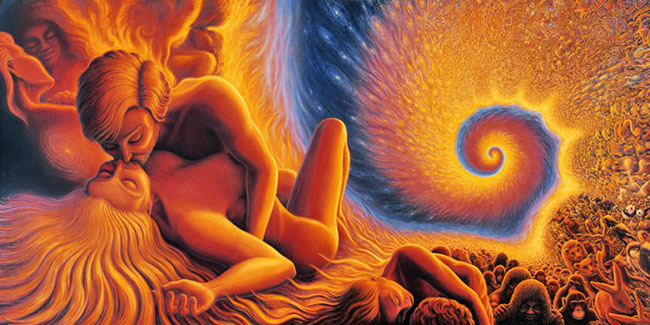|
|
|
2007 from Health-Science-Spirit Website
Fortunately we can now understand much of the prevailing dynamics due to recent advances in the neurochemistry of the brain.
The observed effects can partly be explained with biochemistry and partly with bioenergetics.
Wilhelm Reich was the first scientist to describe the nature and purpose of the orgasm as a discharge of excess bioenergy with the additional liberation of feeling energy, and he also recognized the negative consequences of blocked sexual energies.
Unfortunately, in addition to exciting peaks, orgasms tend to produce powerful negative side effects that are only now becoming better understood.
This is due to predictable trends in hormonal activity which seem to be similar in all mammals to ensure certain evolutionary objectives, especially the wide mixing of gene pools and the safe raising of offspring. This is achieved with the following neurochemical changes.
The main players are:
These hormones can also have different but generally related functions.
When we are sexually aroused by close contact our dopamine level rises further and at the time of orgasm we have a dopamine brainstorm which one researcher compared to the effects of heroin on the brain.
Dopamine is active in all addictions, even in people who have forgotten what sex is.
Most of this activity is in the limbic system, the oldest part of the brain.
Dopamine Levels
After orgasm dopamine levels fall sharply with the usual withdrawal symptoms.
This reaction tends to be immediate in males and delayed in females. Also prolactin levels rise, and androgen receptors fall after orgasm. Low testosterone is associated with irritability and anger. In sexually satiated rats it has been shown that serotonin and endorphin levels also rise, and this also decreases dopamine and raises prolactin levels. Oxytocin levels fall after conventional orgasm but remaining in close contact may help to counter this drop and sustain oxytocin levels.
This is exactly the same process and length of time prolactin levels need to recover during withdrawal from cocaine.
Symptoms associated with excess Prolactin
Continuation of above, HERE...
|


